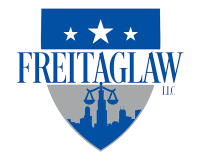
Do You Need To Protect Your Assets?
ESTATE PLANNING
COMMON ESTATE PLANS
WILLS
Your last will and testament provides the ability to distribute property, formulate a plan to care for any children and otherwise enable an individual to distribute any assets they may have. A will is also the primary means by which you can leave property to a person or entity other than a blood relative.
POWER OF ATTORNEY
Power of attorney is a legal document allowing you to appoint a agent with the authority to act on your behalf. The person who makes the power of attorney is called the “principal,” and the person given the authority to act for another is called the “agent” or “attorney-in-fact.” The agent will have control over your business, financial or health matters and be able to make legal decisions for you. A power of attorney can give the agent broad authority or you can limit an agent’s power to manage only specific assets or handle a certain transaction.
TRUSTS
Trusts are flexible instruments that allow you to put conditions on gifts and provide an allowance for a beneficiary rather than a lump sum. When you set up a living trust, for example, you can enjoy your property during your lifetime and transfer wealth seamlessly at your passing. It can transfer assets from the individuals name to that of the trust, thereby offering better protection and control.
There are many types of trusts, the following are just some examples of types available:
- REVOCABLE TRUST – In this type of trust, you retain control of your assets during your lifetime and may revoke or revise a trust at any time. Living trusts are a form of revocable trust which are popular. The living trust gives you control over your assets while an individual is living and after that individual’s death.
- IRREVOCABLE TRUST – When this type of trust is established, the assets no longer belong to you and are not able to be changed without the consent of the beneficiary. The benefit however is that assets in this type of trust are not subject to estate taxes.
- REVOCABLE LIFE INSURANCE TRUST – The revocable life insurance trust is a useful estate planning tool where the insured is the owner of the insurance and the proceeds will be taxable to the insured’s estate for federal estate taxes. This type of trust can be used when estate tax savings are not a consideration.
- IRREVOCABLE LIFE INSURANCE TRUST – This type of trust removes a grantor’s life insurance from the taxable estate Irrevocable life insurance trusts are for situations in which the life insurance is to be excluded from estate taxation in the insured estate, without having to give a life insurance policy outright to the beneficiary. Irrevocable life insurance trusts can appeal because they can reduce the federal estate taxation to the person’s estate.
- LAND TRUST – Land trusts are a useful for holding title to real estate in Illinois. Land trusts differ from all the ways in which title to real estate can be held. A land trust has many advantages in that it can be used under many circumstances in preference to tenancy in the common, joint tenancy and in holding title in a corporation.
